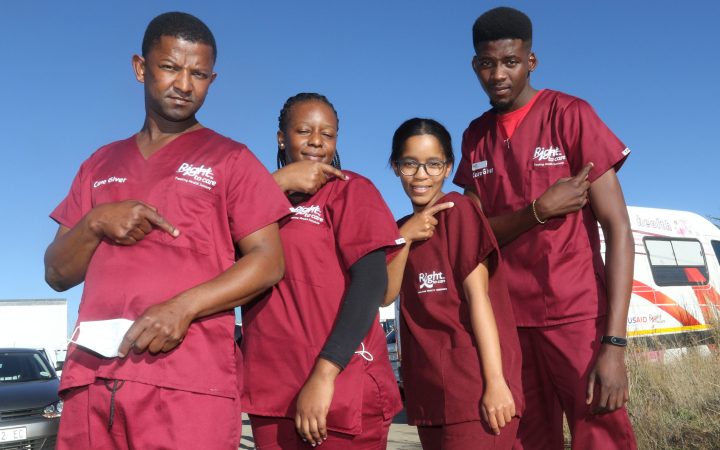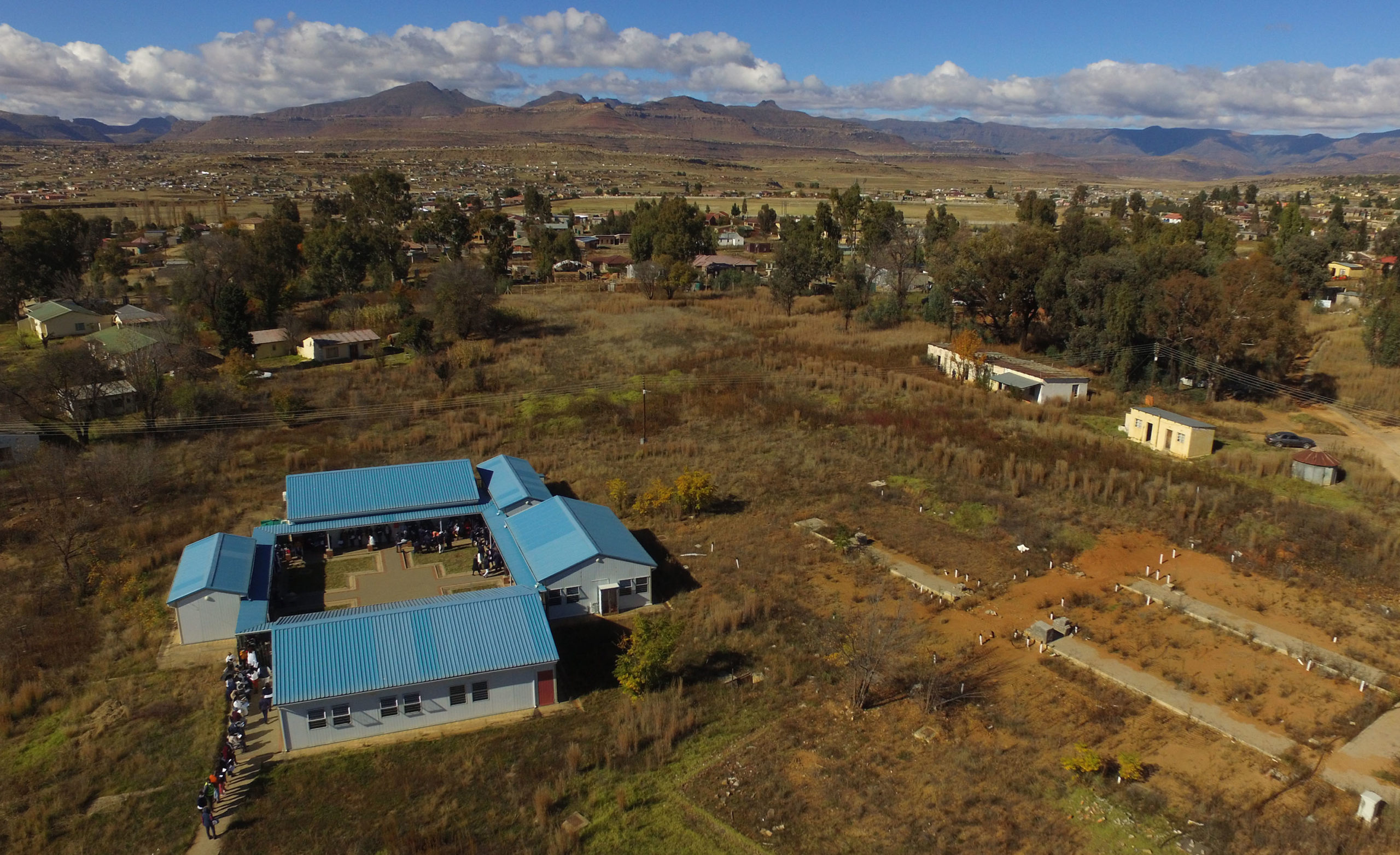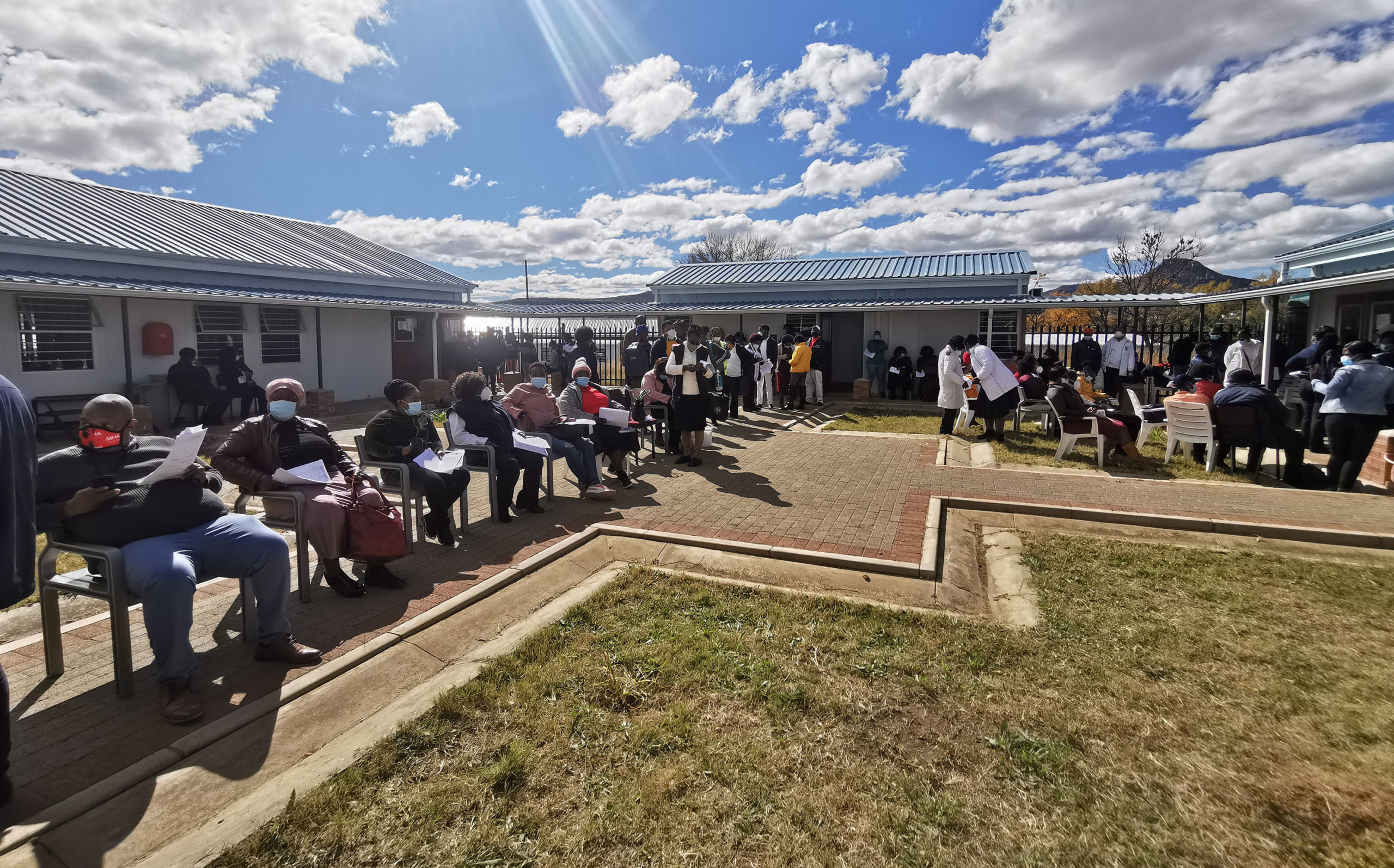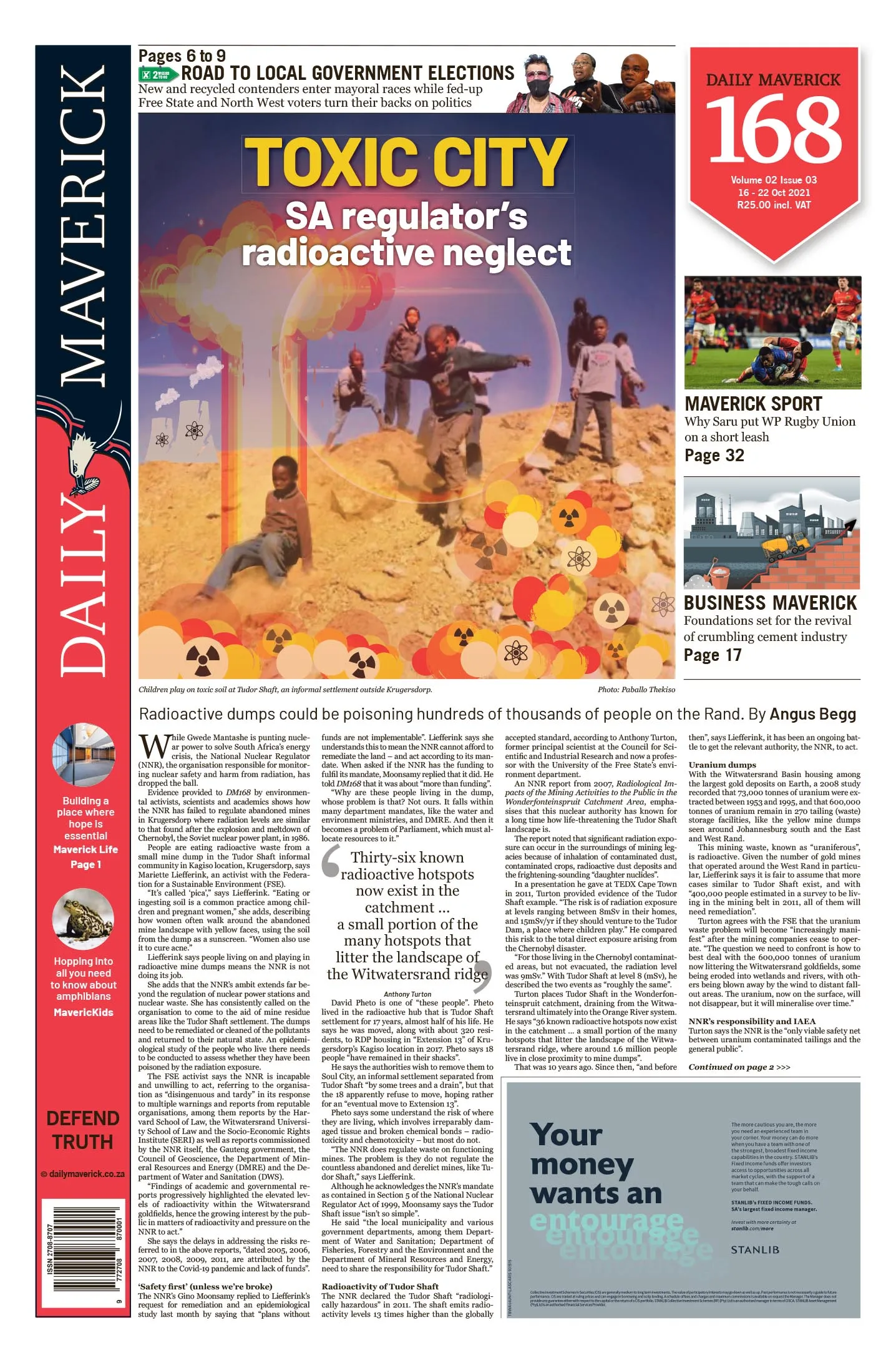COVID-19
Right to Care vaccination team on a mission to get to far-flung places in the Eastern Cape

If getting the population vaccinated is a bit like climbing a metaphorical mountain, Alfred Ncube and his team play their part by literally wending their way up remote, rough rural roads, hills, dales and peaks, through mud and dirt ... in a minibus.
With a handful of SIM cards and a heart full of gratitude, Alfred Ncube leaves the Mbotyi River Lodge near Lusikisiki every morning with one mission: he needs to find a route for the convoy from Right to Care to get to some of South Africa’s most remote communities with their precious cargo of Covid-19 vaccines.
Some days he has to tow the bus full of nurses up a road, because not even the Toyota Quantum, South Africa’s notorious minibus taxi, could make it up the hill in the mud.
Armed with SIM cards from all the major networks “as one of them will work”, Ncube sets off early, around 7am each morning, and often returns late at night.
“But we must make a way,” he said. “The old people who live there in those villages are so grateful for the vaccine. So happy. They are so vulnerable and we must get the vaccine to where they are.”
The sites in the rural Eastern Cape often lack electricity, connectivity – and sometimes even a road structure. But Ncube has always been able to make a plan.
“We go the day before to check and do some loud-hailing so that people know we are coming. I check on electricity and connectivity because I don’t like for us to do manual work. It is better when it is electronic then we know we won’t miss a thing.”
“Once we were trying to get to a village right on top of a mountain. The road was on the edge of the mountain. It was a little bit scary,” he said.
Originally from KwaZulu-Natal, Ncube now lives in Johannesburg and has worked for Right to Care for the past five years. His mission takes the 47-year-old father away from his family for three weeks in the month.
“I never thought I would do work like this. But I have a soft spot for the elderly. I am grateful to be able to help. I am grateful for the opportunity to give back,” he said. “They really need our help, otherwise they will never get the vaccine,” he said.
“No one should be left out of the vaccine programme, including people living in far-flung areas. There is an urgency to vaccinate as variants may emerge and spread. We need to achieve herd or population immunity to break the chain of transmission as quickly as possible,” said Dr Ntombi Sigwebela from Right to Care.
Right to Care is supporting the National Department of Health and South Africa’s vaccination programme in the Eastern Cape, Northern Cape, Free State and Mpumalanga. The organisation is using its large-scale comprehensive HIV care and treatment and disaster medicine experience to roll out a programme of unprecedented scale and complexity.
“Right to Care set up vaccination sites in the remotest areas of the Eastern and Northern Cape. We went to places that many South Africans haven’t heard of to reach healthcare workers who are on the frontlines of Covid-19,” she explained. “Right to Care was able to vaccinate over 43,000 healthcare workers in the Eastern and Northern Cape during the Sisonke trial. Thanks to USAid, which funded key elements of Right to Care’s Covid-19 response, and is now enabling the drive to vaccinate South Africans.
“We use sophisticated geographic information system [GIS] technology to assess routes and plan the transportation of the vaccines from central to peripheral distribution sites. Our pharmacy teams use these maps to establish the best place to store and distribute the vaccines.
“Right to Care also ensured that the right infrastructure was in place, including security and internet connectivity. Right to Care provided technical assistance to the national and regional departments of health for cold-chain planning, which is especially critical to ensure vaccines remain at the right temperature.
“We then assisted with demand creation for the vaccine and we considered how healthcare workers could get a jab and be back at work as fast as possible. We also set up a call centre, which is manned by doctors and nurses for queries and to assist vaccine recipients experiencing adverse effects.”
Wendy Ovens from Right to Care said their work to take the Covid-19 vaccine to some of South Africa’s remote rural communities also brought her into some situations she never thought she would experience.
“One night I was standing in a shop, at 6.30 at night, buying tyres with my credit card. That week alone we went through 15 tyres,” she said.
The organisation has six teams on the ground – 60 people who are working in the field, including a pharmacist.
“Today the pharmacist himself was getting into a 4×4 to go fetch more vaccine doses for us,” she said. “It is incredibly valuable to have him here to make sure the cold chain is in place. I have really been struck by how incredibly dedicated the staff is.
“It is not an easy task. One day we had a driver slip off the mountainside. We were lucky that the car did not roll. We had to tow him out of there.”
She said the four teams currently working in the Eastern Cape’s OR Tambo district, with some of the most remote rural communities, have so far reached 21.3% of the adult population with vaccines.
“Some days we have no electricity. Sometimes for three or four days. Or I have to go to the local spaza shop to buy an electricity voucher for the venues,” she said.
“There is so much in the media from people who are against the vaccine. I wish they could see how incredibly grateful the rural communities are when we reach them.
“People are so relieved when we arrive there with the vaccine. There is no vaccine hesitancy here.”
She said Covid-19 was not often talked about in the rural villages.
“Everybody knows someone who died of it, but nobody talks about it. I was at a school recently where I asked the children if they knew anyone who died of Covid-19. Only one put up his hand. Then I asked if they know of people who died of an illness. Everyone put up their hands.
“The other day I was walking on the beach and a child came to thank me for bringing them the vaccine. If a grandmother dies in these communities you lose a pension, you lose the household income, and many will lose everything.
“I must say some days I am astounded [where] we manage to get with the convoy, especially when it rains.”
Ovens said they travel with a pharmacist who can treat severe anaphylaxis if it should happen. It could be fatal in a rural area.
“I also want to say that the dedication of the rural health workers from the Department of Health is incredible. They work so hard,” she said.
“The work our own team is doing is also very difficult. People are away from home. They worry about their properties, their children. But I think we have established a good rhythm now.”
She said they try to finish four weeks of work in three weeks and then return home from Tuesday to Sunday, when they return to the villages of Ingquza Hill to finish their mission.
“Every morning when I go out I first look at the weather. When there are high winds the power will go down and sometimes it will be down for three to four days.”
But there is no time to stop.
“When I was helping with the vaccination in the Sisonke programme I will never forget the relief on health workers’ faces when we reached them with the vaccine – their relief, my own sense of relief I felt, and the look of gratitude and relief on the faces of those in the rural villages. That is why we carry on,” she said. DM168
This story first appeared in our weekly Daily Maverick 168 newspaper which is available for R25 at Pick n Pay, Exclusive Books and airport bookstores. For your nearest stockist, please click here.
"Information pertaining to Covid-19, vaccines, how to control the spread of the virus and potential treatments is ever-changing. Under the South African Disaster Management Act Regulation 11(5)(c) it is prohibited to publish information through any medium with the intention to deceive people on government measures to address COVID-19. We are therefore disabling the comment section on this article in order to protect both the commenting member and ourselves from potential liability. Should you have additional information that you think we should know, please email [email protected]"







 Become an Insider
Become an Insider